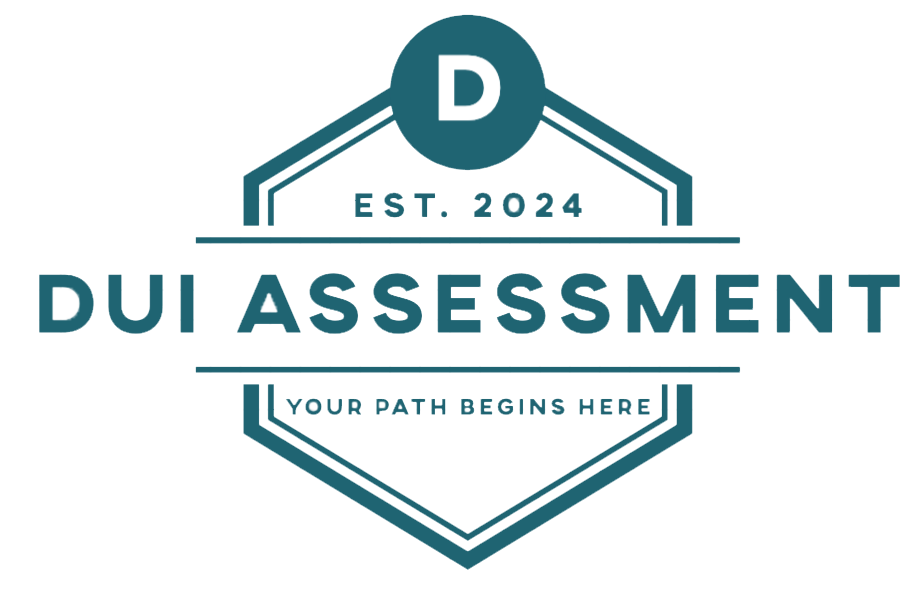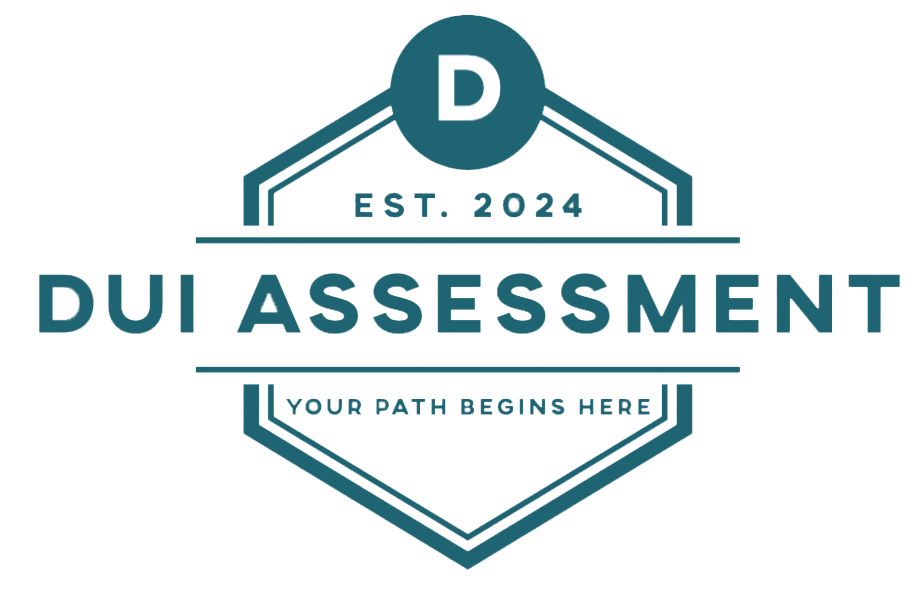Facing DUI charges Washington State can be one of the most stressful and life-altering experiences a person can encounter. Washington has developed some of the harshest DUI penalties in the nation, with consequences that extend far beyond the immediate legal proceedings and can impact every aspect of your life for years to come. Understanding the complex legal framework surrounding impaired driving offenses is crucial for anyone who finds themselves confronting these serious charges in the state of Washington.
The legal landscape for DUI charges Washington State involves a sophisticated system of laws, penalties, and procedures that can be overwhelming for someone unfamiliar with the process. From the moment of arrest through potential conviction and beyond, defendants face a dual-track system that includes both criminal court proceedings and administrative actions by the Department of Licensing. This comprehensive approach reflects Washington’s commitment to deterring impaired driving while ensuring that those convicted face meaningful consequences designed to prevent future violations.
Washington State defines driving under the influence through multiple statutory provisions that create various ways prosecutors can secure convictions. The state has both “per se” violations based on blood alcohol content and impairment-based charges that don’t require specific BAC levels. Additionally, Washington recognizes “actual physical control” violations, meaning you can face charges even if you weren’t actively driving when law enforcement made contact with you.
The consequences of DUI charges Washington State are particularly severe because they carry mandatory minimum penalties that judges cannot reduce, regardless of individual circumstances or mitigating factors. These mandatory minimums ensure that even first-time offenders face jail time, substantial fines, license suspension, and other consequences that can disrupt employment, family life, and personal relationships. Understanding these potential consequences is essential for making informed decisions about your case and your future.
Washington’s Comprehensive DUI Legal Framework
Washington’s approach to impaired driving has evolved into one of the most comprehensive and strict systems in the United States, reflecting decades of legislative efforts to address the serious public safety concerns associated with drunk and drugged driving. The state’s laws encompass not only traditional alcohol-related offenses but also address impairment from marijuana, prescription medications, and other controlled substances.
Under Washington Revised Code Sections 46.61.502 and 46.61.504, the state has established two primary DUI statutes with essentially identical penalties. The first prohibits driving under the influence of alcohol or drugs, while the second prohibits being in “actual physical control” of a vehicle while impaired. This dual approach ensures that prosecutors have multiple avenues for securing convictions and prevents individuals from avoiding charges by claiming they weren’t actively driving at the time of police contact.
The “actual physical control” provision is particularly significant because it allows for DUI charges even when the vehicle isn’t moving or the engine isn’t running. Washington courts have interpreted this broadly, though defendants can assert defenses by showing the vehicle was safely off the roadway when police made contact. This provision closes potential loopholes that might otherwise allow impaired individuals to avoid consequences for putting themselves in position to drive while intoxicated.
Washington’s per se DUI laws establish specific blood alcohol concentration thresholds that create automatic violations regardless of whether the defendant appeared impaired. For drivers over 21, a BAC of 0.08% or higher constitutes a per se violation. Commercial drivers face a lower threshold of 0.04%, reflecting the higher safety standards expected of professional drivers. For drivers under 21, Washington’s zero-tolerance approach sets the BAC limit at just 0.02%, recognizing that any measurable amount of alcohol consumption by minors while driving is unacceptable.
Understanding the Dual-Track System: Criminal and Administrative Proceedings
One of the most confusing aspects of DUI charges Washington State is the dual-track system that separates criminal court proceedings from administrative license actions. These two processes run simultaneously but independently, meaning outcomes in one proceeding don’t necessarily affect the other. Understanding this separation is crucial because many people mistakenly believe that winning their criminal case will automatically restore their driving privileges.
The criminal case addresses the actual DUI charges and potential penalties including jail time, fines, probation, and court-ordered programs. This process follows traditional criminal law procedures with arraignment, pretrial motions, discovery, and potentially a trial. The prosecution must prove guilt beyond a reasonable doubt, and defendants have all the constitutional protections typically associated with criminal cases.
The administrative action is handled by the Washington State Department of Licensing and focuses solely on driver’s license suspension or revocation. This action is triggered automatically when someone is arrested for DUI and either fails a chemical test with a BAC above the legal limit or refuses to submit to testing. The administrative suspension can occur even if the criminal charges are ultimately dismissed or reduced to a lesser offense.
The administrative hearing process operates under different rules and standards than criminal court proceedings. The Department of Licensing need only prove their case by a “preponderance of the evidence” rather than beyond a reasonable doubt. The hearings are typically conducted by telephone with a DOL hearing examiner who serves both as fact-finder and decision-maker. This process can result in license suspension even if you’re never convicted of the criminal DUI charge.
Criminal Penalties and Sentencing Guidelines
Washington’s criminal penalties for DUI charges Washington State are among the most severe in the nation, with mandatory minimum sentences that eliminate judicial discretion for lesser punishments. These mandatory minimums ensure that even first-time offenders face meaningful consequences, while repeat offenders encounter progressively harsher penalties designed to deter future violations.
For a first DUI offense with a BAC under 0.15%, the mandatory minimum penalty includes at least 24 consecutive hours in jail, though judges have discretion to allow 15 days of electronic home monitoring as an alternative. The fine ranges from $350 to $5,000, and the court will impose a 90-day license suspension. Additionally, first-time offenders must complete an alcohol assessment, attend a victim impact panel, and may be required to install an ignition interlock device.
When the BAC is 0.15% or higher, or when someone refuses chemical testing, the penalties increase significantly. The mandatory minimum jail time increases to 48 consecutive hours, with the alternative of 30 days of electronic home monitoring. The license suspension period extends to one year, and ignition interlock device requirements become more likely and longer in duration.
Second DUI convictions within seven years face substantially harsher penalties, reflecting Washington’s progressive approach to repeat offenders. The mandatory minimum jail time increases to 30 days, though judges may allow alternative sentencing of four days in jail followed by 180 days of electronic home monitoring. Fines range from $500 to $5,000, and the license suspension extends to two years. Ignition interlock device installation becomes mandatory for at least one year.
Third DUI convictions within ten years trigger felony charges under Washington law, representing a significant escalation in the severity of consequences. Felony DUI convictions carry potential prison sentences of up to five years, fines up to $10,000, and permanent impacts on civil rights including voting and firearm ownership. These cases also involve additional probation requirements and more extensive treatment obligations.
Administrative License Suspension and DOL Hearings
The administrative license suspension process represents one of the most immediate and impactful consequences of DUI charges Washington State, as it can result in loss of driving privileges within 30 days of arrest regardless of the ultimate outcome of criminal proceedings. Understanding this process and the narrow window for challenging it is crucial for protecting your ability to drive during the pendency of your case.
Washington’s implied consent law requires all drivers to submit to chemical testing when lawfully arrested for DUI. By driving on Washington roads, you’ve automatically consented to provide breath, blood, or urine samples if requested by law enforcement. Refusing this testing or producing results above the legal limit triggers automatic license suspension through the Department of Licensing.
The timeline for challenging administrative license suspension is extremely tight and unforgiving. You have exactly seven calendar days from the date of arrest to request a hearing with the Department of Licensing. This deadline includes weekends and holidays, and missing it results in automatic license suspension with no opportunity for review. The hearing request must be accompanied by a $375 fee, though fee waivers are available for individuals who meet indigency requirements.
The administrative hearing itself is typically conducted by telephone with a DOL hearing examiner reviewing the case. The issues are limited to specific legal questions: whether the arrest was lawful, whether the officer had reasonable grounds to believe you were driving under the influence, whether you were properly advised of the implied consent law, and whether you refused testing or produced results above the legal limit.
Winning a DOL hearing can prevent license suspension entirely, but the odds are challenging. Statistics suggest that hearing examiners uphold the suspension in approximately 80% of cases. However, even requesting a hearing provides benefits including the opportunity to obtain and review police reports, question the arresting officer under oath, and delay the start of any suspension while the hearing process is pending.
Aggravating Factors and Enhanced Penalties
DUI charges Washington State become significantly more serious when aggravating factors are present, leading to enhanced penalties that can dramatically increase the consequences beyond standard sentencing guidelines. These aggravating factors reflect legislative recognition that certain circumstances make impaired driving particularly dangerous or egregious.
High blood alcohol concentration represents one of the most common aggravating factors, with enhanced penalties applying when BAC reaches 0.15% or higher. These cases face longer mandatory minimum jail sentences, extended license suspension periods, and increased likelihood of ignition interlock device requirements. Courts view extremely high BAC levels as evidence of particularly reckless behavior that warrants additional deterrence.
Having a minor passenger in the vehicle at the time of the DUI offense triggers significant penalty enhancements designed to protect children from the dangers of impaired driving. Washington law imposes additional ignition interlock device requirements of 12 months for each passenger under 16 years old, or 18 months per child if the offense is a felony or involves a BAC of 0.15% or higher.
Commercial drivers face unique challenges and enhanced consequences due to the higher safety standards expected of professional drivers. A DUI conviction can effectively end a commercial driving career, as CDL holders face disqualification periods that prevent them from operating commercial vehicles. Even DUI convictions in personal vehicles can trigger CDL sanctions, creating devastating professional consequences.
Underage drivers face special penalties under Washington’s zero-tolerance laws, which recognize that any alcohol consumption by drivers under 21 is unacceptable. These cases can result in license suspension, fines up to $1,000, and up to 90 days in jail. For drivers under 18, any confinement is served in juvenile detention facilities, but the consequences remain serious and can affect educational and future employment opportunities.
Long-Term Consequences and Collateral Impacts
The long-term consequences of DUI charges Washington State extend far beyond the immediate criminal penalties and can affect virtually every aspect of a person’s life for years or even decades. Unlike many other states, Washington does not allow DUI convictions to be expunged or sealed, meaning these convictions remain permanently visible on background checks and public records.
Employment consequences can be particularly devastating, especially for individuals whose jobs require driving, professional licensing, or security clearances. Many employers conduct background checks, and DUI convictions can disqualify candidates from consideration for positions of trust or responsibility. Professional licenses in fields such as healthcare, education, finance, and law may face disciplinary action or revocation following DUI convictions.
Insurance impacts represent another long-term financial burden that can persist for years after conviction. DUI convictions typically result in classification as a high-risk driver, leading to dramatically increased insurance premiums or policy cancellation entirely. Many drivers find themselves forced to obtain SR-22 insurance, a special form of high-risk coverage that can cost thousands of dollars annually more than standard policies.
Immigration consequences can be particularly severe for non-citizens facing DUI charges Washington State. Depending on the specific circumstances and the individual’s immigration status, DUI convictions can trigger removal proceedings, prevent naturalization, or bar reentry to the United States. These consequences apply even to legal permanent residents and can result in family separation and loss of established lives and careers.
Financial impacts extend beyond fines and increased insurance premiums to include attorney fees, court costs, treatment program expenses, ignition interlock device costs, and lost wages due to jail time or license suspension. The total financial impact often reaches tens of thousands of dollars, creating lasting economic hardship that can take years to overcome.
Defense Strategies and Legal Representation
Successfully defending against DUI charges Washington State requires specialized knowledge of complex laws, scientific evidence, and procedural requirements that most general practitioners lack. The stakes are simply too high to risk inadequate representation, making the selection of an experienced DUI attorney one of the most important decisions you’ll make throughout this process.
Effective DUI defense begins with a thorough investigation of the traffic stop and arrest procedures. Police officers must have reasonable suspicion to initiate a traffic stop and probable cause to make an arrest. Violations of constitutional rights during any phase of the investigation can result in suppression of evidence or complete dismissal of charges. Experienced attorneys know how to identify these violations and file appropriate motions to exclude illegally obtained evidence.
The scientific evidence in DUI cases, particularly breath and blood test results, requires specialized knowledge to challenge effectively. Breath testing machines must be properly maintained and calibrated, operators must be properly trained and certified, and proper procedures must be followed during testing. Blood testing involves chain of custody requirements, proper storage and handling procedures, and potential contamination issues that can affect accuracy.
Field sobriety tests, while widely used by law enforcement, are notoriously unreliable and subject to numerous factors that can affect performance including medical conditions, physical limitations, environmental conditions, and officer administration errors. An experienced DUI attorney will know how to challenge the validity and interpretation of these tests, potentially undermining a key component of the prosecution’s case.
The administrative hearing process provides another opportunity for aggressive defense, even though the odds of success may seem challenging. Experienced attorneys can subpoena the arresting officer, challenge the reliability of testing equipment, and identify procedural violations that might result in dismissal of the administrative action. Even unsuccessful hearings provide valuable discovery opportunities and insights into the prosecution’s case.
Get Help With DUI Assessment Today
Understanding DUI charges Washington State requires recognizing the complexity and severity of the state’s approach to impaired driving enforcement. From the initial arrest through potential conviction and long-term consequences, Washington’s dual-track system creates numerous challenges that require knowledgeable navigation and aggressive defense strategies.
The mandatory minimum penalties, permanent nature of convictions, and extensive collateral consequences make these charges some of the most serious misdemeanor offenses in Washington law. The administrative license suspension process adds another layer of complexity that can result in immediate loss of driving privileges regardless of the criminal case outcome.
The seven-day deadline for requesting administrative hearings, the complexity of scientific evidence, and the numerous procedural requirements throughout the process make experienced legal representation essential rather than optional. The consequences of inadequate defense can affect every aspect of your life for years to come, making the investment in quality legal representation a crucial decision.
If you’re facing DUI charges Washington State, time is of the essence. The administrative hearing deadline passes quickly, and early intervention by an experienced attorney can make the difference between maintaining your driving privileges and facing months or years of suspension. Don’t let confusion about the process or attempts to handle the matter yourself result in consequences that could have been avoided with proper representation and aggressive defense strategies. You deserve clarity, compassion, and quality care. At DUI Assessment, we provide exactly that. Visit our website today at www.dui-assessment.com to learn more.



